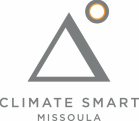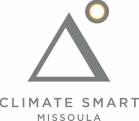For our most updated information on wildfire smoke and its relationship to COVID-19, visit our companion site, montanawildfiresmoke.org
Why is wildfire smoke unhealthy for older adults? |
What can I do to stay safe during smoke events? |
|
When wildfire smoke rolls into our valley, it affects all of us, but it poses particular challenges for older adults. As we age, lung capacity can decrease, increasing the likelihood that air pollution will stress our respiratory and circulatory systems. For older adults, particulate air pollution may compromise your immune system, which increases susceptibility to infections. Anyone with a preexisting lung or heart condition may be further at risk.
Live in a long term care facility? Ask your building manager these questions!
|
Change behavior to limit exposure
eliminate indoor air pollution
clean indoor air with a hepa portable air cleaner
make a plan with your healthcare provider
|



